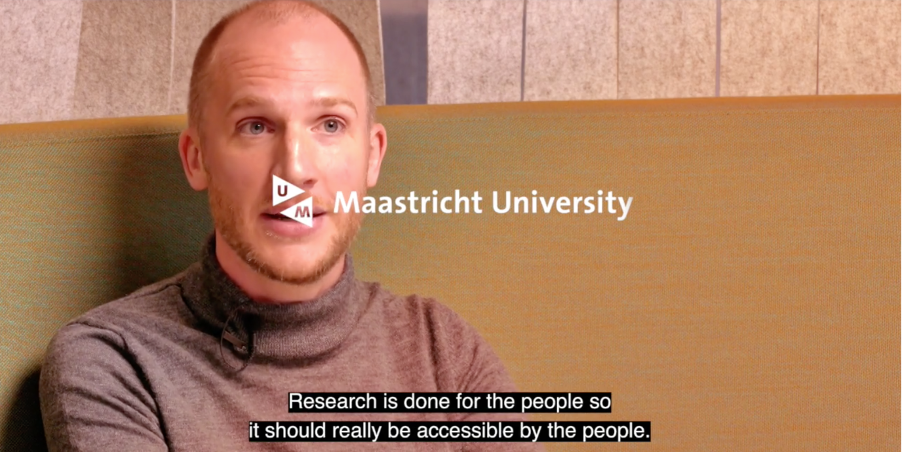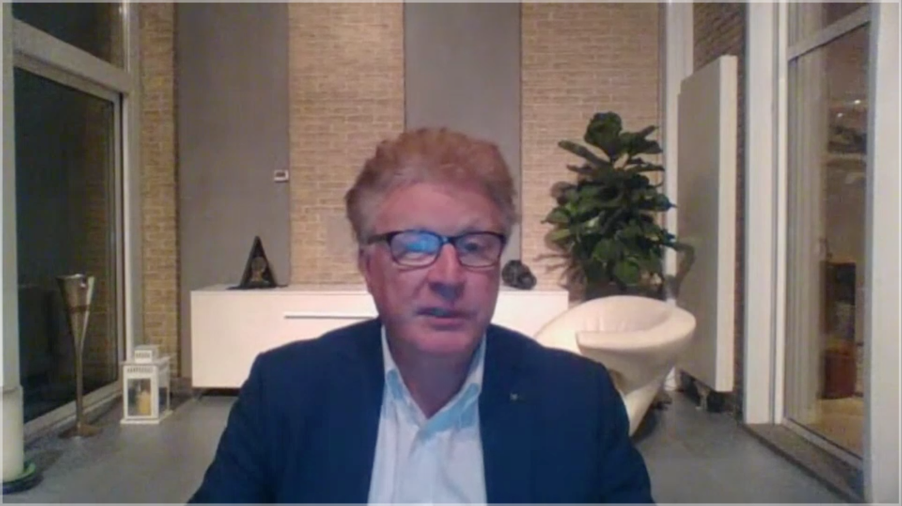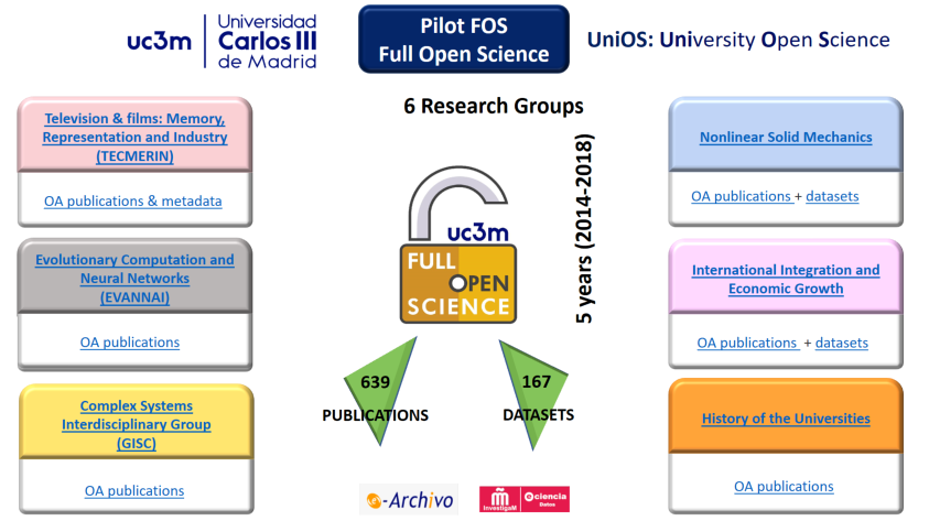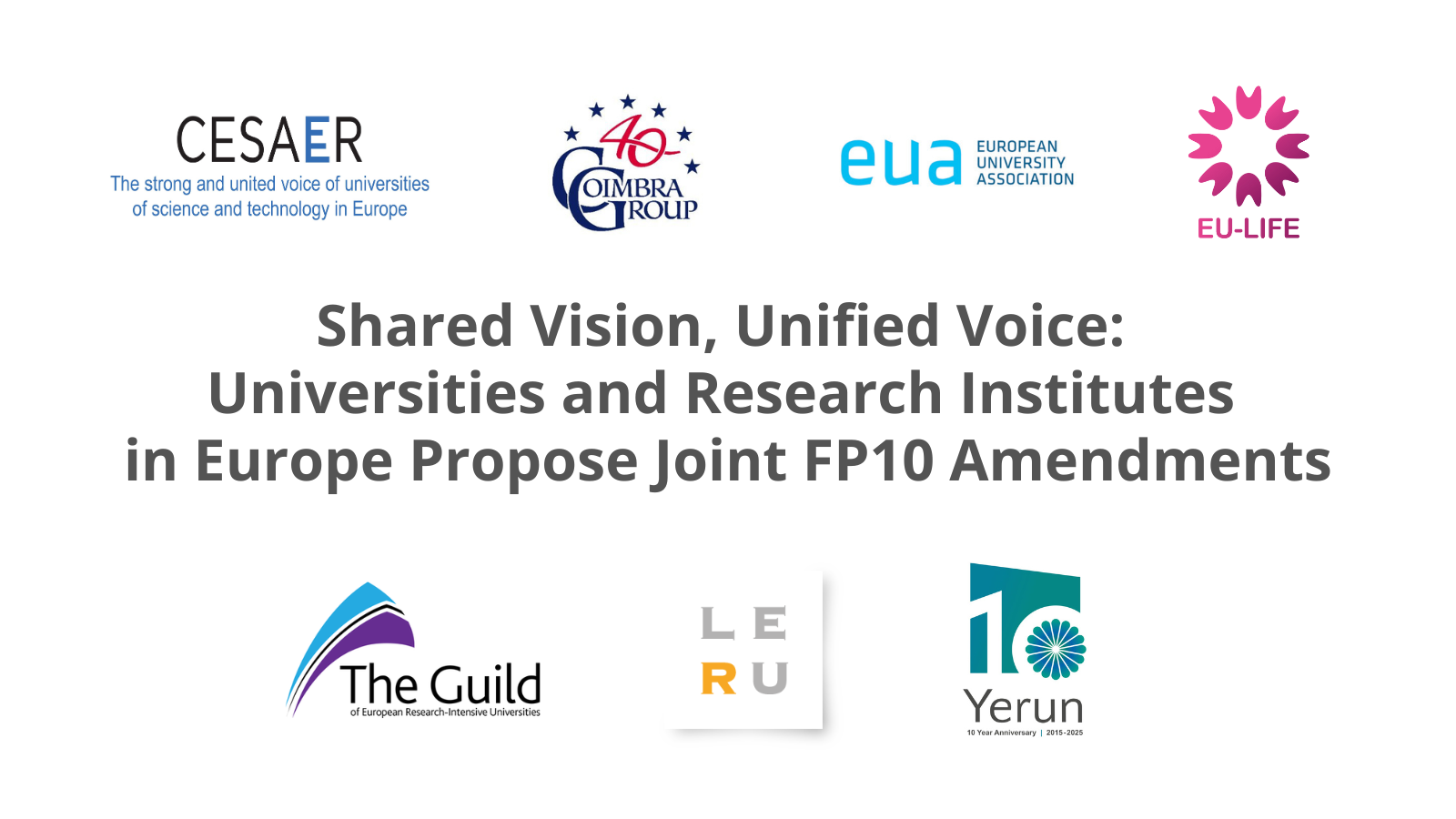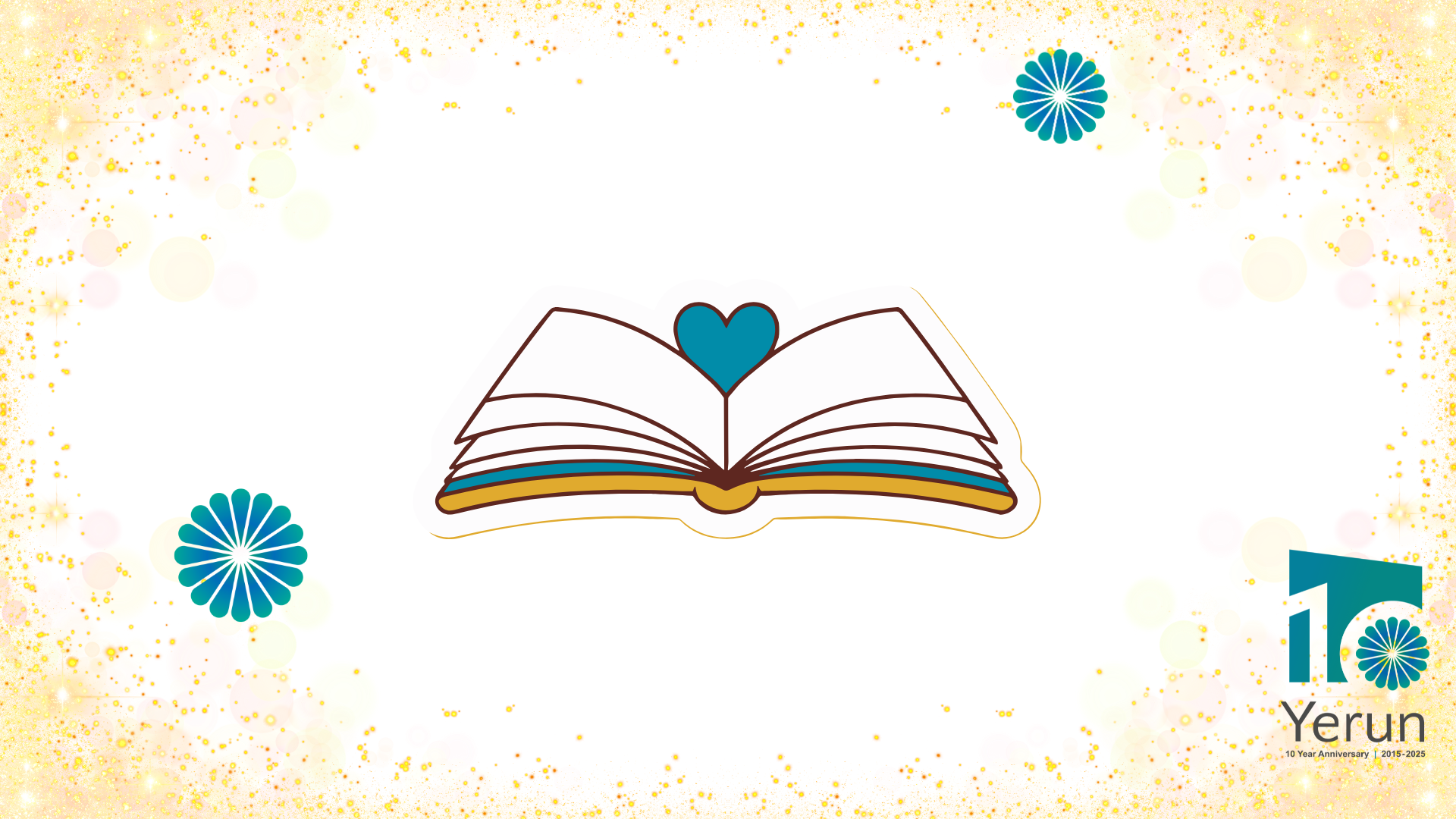Until Sunday, this week marks the Open Access Week 2020, which this year is dedicated to the topic: “Open with Purpose: Taking Action to Build Structural Equity and Inclusion”. At YERUN, we have always been convinced about the importance of contributing to the transition and implementation towards Open Science at universities. This is even more relevant in the unprecedented times we are living in, which are making clear how crucial openness and collaborative approaches are in finding common solutions to global challenges.
Being Open Science one of YERUN’s strategic priorities, our members have always taken the opportunity during the Open Science Weeks, to launch numerous initiatives that contribute to raising awareness on the subject among their communities and beyond. This year, we took a look across the network and have collected a series of very relevant initiatives that are going on since last Monday. Here, you can read some of them:
University of Essex: Open Science blogs, puzzling hunts, escape rooms, guides and games!
.
At the University of Essex, Open Access Week 2020 is an opportunity to reflect on some of the achievements that the scholarly communications team has made the past year. Hannah Pyman, Scholarly Communications Co-Ordinator, has written a blog post about Open Access at Essex, which includes some of University of Essex’ OA creations; ‘The Puzzling Hunt for Open Access’ – an interactive online puzzle based on Katrine Sundsbø’s Open Access Escape Room and the ‘Open Research Guide’ – a dedicated space on the Library website to learn more about Open Research and Open Access publishing. Colleagues from Essex are also proud to re-launch their Essex Student Journal on the Janeway Publishing Platform. The journal is a Diamond Open Access Journal and all publications are in line with accessibility guidelines, making them not only free but easy to read for anyone! Earlier this year Hannah Pyman and Katrine Sundsbø also developed the game ‘Copyright Dough’, which uses role play and play dough to teach copyright, with a special focus on Creative Commons licences. The instructions to the game and downloadable props have been shared open access on Figshare, you’ll just need some people and play dough to play it! They are hoping to be able to travel with the game in 2021. And last… an Open Access Mystery will be available by the end of the year.
University of Konstanz: Open Science virtual coffee lectures and experts live consultations
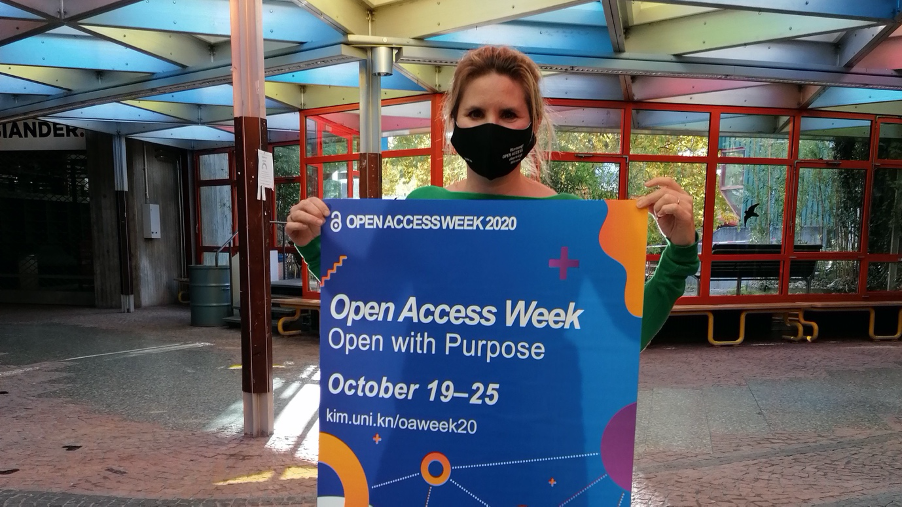
At the University of Konstanz, the Team Open Science held four virtual Coffee Lectures. In an informal atmosphere, experts from the team gave an overview about fundamental knowledge of Open Access and reflected on current developments in this area. After a short Introduction in Open Access on Monday (19 October 2020), they discussed Open Access regulations of funding organizations on Tuesday (20 October 2020). With the motto “You Got to Fight for Your Right” licenses for Open Access were further discussed on Wednesday (21 October 2020). The final lecture was held about the possibilities of Open Access Funding at the University of Konstanz on Thursday (22 October 2020).
Furthermore, the project open-access.network, which is funded by the German Federal Ministry of Education and Research, offered several events during the International Open Access Week 2020. They started the week with an informational talk about the Open Access Rainbow, what colours it has and if we really need them. Among other things, the Speaker Dr. Stefan Schmeja addressed the question of what lies behind terms such as gold, green or diamond. On the next day, Dirk Pieper talked about cost monitoring of Open Access publications, its opportunities and challenges for libraries. In addition to that, Dr. Ulrike Kändler gave all interested parties the opportunity to ask questions about financing Open Access publications during the event “Financing Open Access – Your Questions & Problems”. Beyond that, the project offered a live consultation with the campaign „The Doctor is in – Live Consultation“ on Tuesday, 20 October 2020 and on Thursday, 21 October 2020.
Maastricht University: “Research is done for the people, so it should really be accessible by the people”
At Maastricht University, Dennie Hebels takes the stage in “Open Science ambassador in the spotlight”, an interactive video created by the Maastricht University (UM) Library for the Open Access Week 2020. In this video, Dennie Hebels shares his enthusiasm for various Open Science topics. He is an ambassador for the Faculty of Health, Medicine and Life Sciences (FHML) within the Open Science Community (OSC) Maastricht. In June this year, he received an Open Science Use Case Award for his project cBiT: The Compendium for Biomaterial Transcriptomics. Dennie calls on researchers from all UM faculties to join OSC Maastricht. He also talks about his experiences with and the importance of ORCID, data management, FAIR data, data sharing, and open access publishing.
University of Antwerp: in the future, we should not talk of “Open” science, as Science should be open by default!
At the University of Antwerp a number of activities have been hosted, such as webinars, blog articles and video testimonials on Open Science. The event is organised by the faculties of Law and Pharmaceutical, Biomedical & Veterinary Sciences together with the Library and the Department of Research Affairs & Innovation. More info can be found here. The UAntwerp is also involved every year as a partner in the Belgian Open Access Week.
.
.
.
University of Eastern Finland: Open Science as a relational game
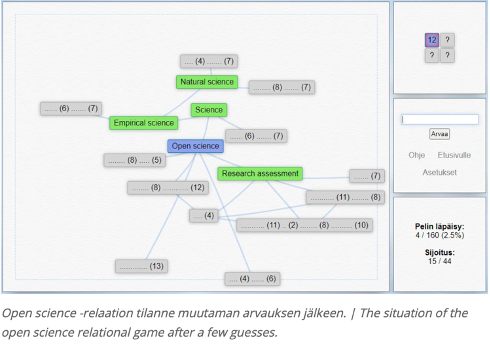
At the University of Eastern Finland, the library’s preferred way to raise awareness on Open Access has been blog writing, one of which is dedicated to open educational resources. Furthermore, the game “Open Science as a relational game”, can be played on a dedicated platform (available in Finnish only). The player guesses any words associated with the given starting word, which, when hit, opens up new words to be guessed until all words included in the game by the author of the relation have been opened (a word must be here understood more broadly than a single word or a compound word; it may be a statement, a proper name, or any other entity consisting of several parts).
.
.
Autonomous University of Barcelona: awareness on Open Science runs on Twitter, with the hashtag #CienciaObertaUAB!
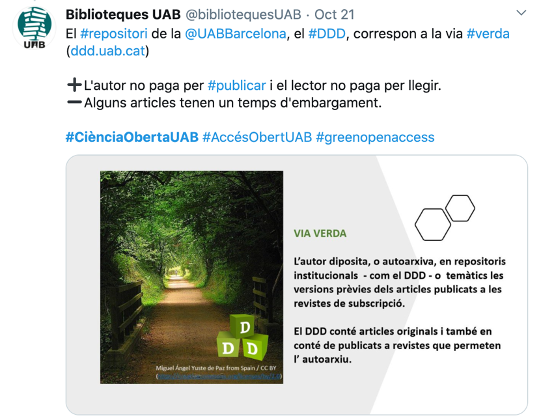
.
At the Autonomous University of Barcelona, the UAB libraries held two training sessions: 1) Talk on Publishing in open access: presentation and context of open science, legal framework, plan S, situation at the UAB, DDD institutional repository, journals to publish and publishing policies, author identification systems, etc. 2) Talk on Open educational resources: what they are, copyright, how to develop educational resources, how to publish them at the UAB, etc. Moreover, the UAB has been very active on Twitter, every day on the @bibliotequesUAB account with the hashtag #CienciaObertaUAB, at 11am and 6pm, they explained what the university does in Open Science!
.
.
University of Southern Denmark super engaged on social media
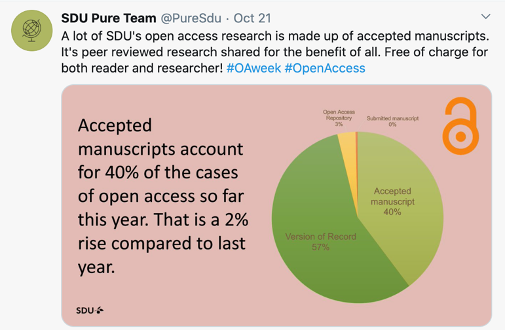
The University of Southern Denmark has been very active on social media as well: Daily Info spots on SDU data and facts related to Open Science are published on Facebook, whose main followers are primarily students. On Twitter, on the other hand, the target is rather the PhD students community, considered a big player in the shift towards Open Science.
.
.
.
.
University of Bremen: supporting Open Access also financially
At the University of Bremen, financial support and advice is given by the library for Open Access publications. Starting in 2010, UBremen has been supporting Open Access publishing and is offering funding for “Article Processing Charges” or “Publication Fees” in Open Access publications to its members. Regarding Open Data and Research Data Management, the University has issued guidelines on research data management – “data sharing – as open as possible, as closed as necessary”. Moreover, a steering committee (with the participation of all university departments related to the topic) deals with central questions around the topic of Research Data Management and Open Data. In the field of Education, the EU SWAFS project “developing and implementing hands-on training on open science and open innovation for doctoral candidates and early career researchers (DIOSI)” will start in 2021 in cooperation with international partner universities.
.
Universidad Carlos III de Madrid celebrated the International Open Access week with its first “FOS (Full Open Science) Research Groups”
The UC3M launched at the beginning of last year a call for Research Groups willing to become FOS (Full Open Science) that means to have, at least:
- 80% of the publications (100% of the metadata) openly available in the institutional repository
- 80% of the research data (100% FAIR data), openly available in Trustworthy Data repositories
As well as follow Open Science training, and start an “open knowledge” attitude.
Finally, 6 groups were granted with the logo of FOS-UC3M research group (TECMERIN, EVANNAI, GISC, Nonlinear Solid Mechanics, International Integration and Economic Growth and History of the Universities).
To shape this pilot and help these research teams the UC3M have created UniOS (Open Science Support Unit / University Open Science). A total of 639 publications and 167 datasets from 5 years have been published. These Research groups are committed to continue in this direction towards Full Open Science. Here is what the researchers think about the pilot: “Open Science: the way to go” (Angel Sánchez. GISC Research Group).
.
Seeing these amazing initiatives implemented by our members, make us proud, because it means that the goals that YERUN members had set for themselves as a network in 2018 were not just words of intent, but they translate into real action and leading examples.



